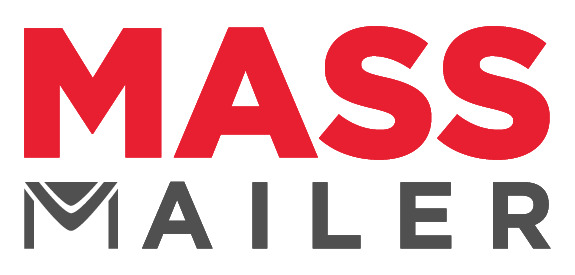Pardot vs Marketing Cloud: Which Is Best for Your Business?
Pardot vs Marketing Cloud: What’s the Difference?
Introduction
Marketing automation has evolved into its own industry and partly owes its growth to the rapid adoption of digitalization during and after the pandemic. It makes complete sense if you think about it, as businesses are increasingly becoming customer-first.

Achieving customer satisfaction and engagement levels suitable for tough competition requires high computing power that can handle complex workflows and work with data.
HubSpot revealed in its Marketing Report 2021 that marketing was the industry with the largest share of automation technologies in use.
Salesforce Marketing Cloud and Pardot are two of the most popular marketing automation tools that quite a few businesses across the globe trust. Both platforms have their own advantages, specialties, and capabilities that help businesses streamline their marketing automation.
With that said, it may become confusing to select the right platform for your business. With two such highly capable tools, there is always the conundrum of the best one suited for you.
Let’s discuss these two marketing automation solutions in depth to help you select one.
Salesforce Marketing Cloud vs. Pardot: The Major Differentiators
Salesforce Marketing Cloud and Pardot are both excellent marketing automation tools that help you with crucial tasks like lead management. However, their specialties distinguish them from one another.
Here is a quick summary of how these two solutions differ:

- Salesforce Marketing Cloud is a more comprehensive solution to marketing automation. It has features for advertising and mobile as well. On the other hand, Pardot is majorly used for email marketing. On that note, MassMailer is another excellent example of a marketing automation solution focusing on email marketing automation. If email marketing is what you specifically need, try MassMailer.
- Pardot can be called a more B2B-oriented platform for marketing automation, while Salesforce Marketing Cloud is more inclined to B2C operations.
- The major difference, however, is the buying cycle on both platforms. While Marketing Cloud is better suited for low-value/large-volume sales profiles, you can use Pardot for high-value/low-volume sales profiles.
- Being a more comprehensive solution, Marketing Cloud enables crafting one-on-one customer journeys better.
- Pardot is an excellent tool for aligning email marketing campaigns with sales metrics.
Seeing how notably different the capability profile is for both platforms, an apple-to-orange comparison wouldn’t be fair. However, discussing individual capabilities may shed more light on the right choice for your business.
Salesforce Marketing Cloud: A Comprehensive Marketing Automation Solution
Marketing isn’t one sole activity – it is a collection of a multitude of tasks and processes that come together to form a full ecosystem. Salesforce Marketing Cloud is a solution that helps you manage this ecosystem.

The platform is essentially granular; it is modular. Within the platform, you find features that equip you with all the tools you need for orchestrating efficient marketing processes and operations:
- Marketing campaign personalization
- Marketing process automation
- Performance optimization and budgeting
- Customer journeys, profiles, history, and data
- Features like MobileConnect and Email Studio for expanded functionality into various channels like SMS
In a nutshell, everything that your marketing department needs to function properly and efficiently, Salesforce Marketing Cloud can cater to with ease.
Features like Advertising Studio and Social Studio set this marketing automation platform apart from the others. They allow your business to expand into new marketing channels, such as Instagram, instant messaging (WhatsApp), Facebook, or even over LinkedIn.
Pardot: Special Focus on Email and Lead Management
Not all businesses have the same sales cycles. Pardot works best for businesses with longer sales cycles. Consider the analogy below:

Business A sells consumer goods like toothpaste, shampoo, soaps, and toothbrushes. They have an impactful USP, and customers purchase their products all the time through a variety of channels – eCommerce, websites, calls, direct messaging, etc.
Their sale volume is high, and sale value is low. In this situation, lead management and nurturing aren’t as important as managing large volumes of product and sale data.
Business B is in the consulting services industry, and each lead they generate needs to be carefully nurtured through hyper-personalized email campaigns.
The sales cycle lasts for months, and the deals are closed by the sales teams instead of over a digital platform. A high level of lead management and nurturing is required for each sale to be successful.
For Business B, Pardot is the more sensible solution because of its lead management and email capabilities. The nurturing tools and functionalities of Pardot make it ideal for building relationships with your customers and guiding them through your sales pipeline to finally close a successful deal sometime in the future.
B2B vs. B2C Marketing: Considerations
Looking at the individual capabilities of both the marketing automation solutions, two things are crystal clear:
- Salesforce Marketing Cloud can handle large volumes of sales and marketing campaigns that have a sales cycle of a day or two. This is typically the case with most B2C businesses, making this tool popular among this circle.
- Pardot has tools and functionalities that focus more on lead management, nurturing, campaign personalization, and email campaigning. Nurturing is an activity a business undertakes where the sales cycles are longer and customers need a push to proceed further into the sales pipelines, as is the case with most B2B brands. Many B2B businesses successfully use Pardot for personalized email campaigns and managing their leads.
However, there is no hard and fast rule that says you can’t use Pardot for B2C or Salesforce Marketing Cloud for B2B. Everything boils down to your marketing methods.
Salesforce Marketing Cloud vs. Pardot: The Verdict
Depending on the scope and expanse of your business’s marketing operations, you can choose:
- Salesforce Marketing Cloud for a more expansive reach into multichannel marketing, handling large volumes of marketing data, its social marketing tools, and creating customized and detailed user journeys
- Pardot, if your business spends time with each lead and nurtures it into a successful sale. It may be better suited for businesses with longer sales cycles – whether B2B (consulting) or B2C (real estate)
Wrapping Up
There is no deficit of marketing automation tools in the market today. The options available are many, and it only makes it harder to choose the best one.
However, between Pardot and Salesforce Marketing Cloud, you can now make a clear selection for your business based on the functionalities they provide.
On the other hand, if what you really need is an email marketing solution for your business, you can select MassMailer instead.
Our platform integrates seamlessly with your Salesforce ERP solution and equips your business with excellent email marketing automation tools like trigger and drip campaigns. You can learn more and get on a free trial here.
